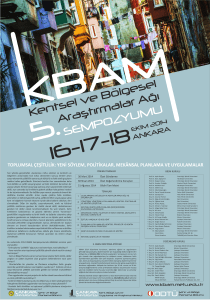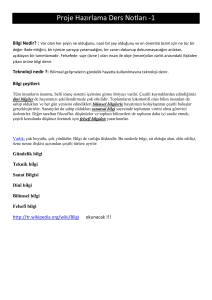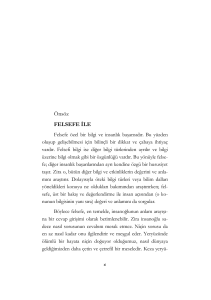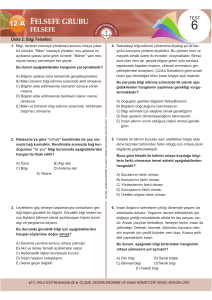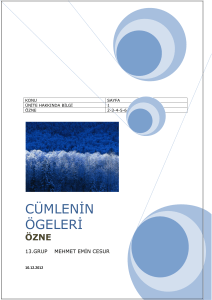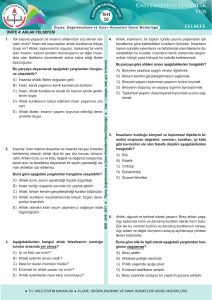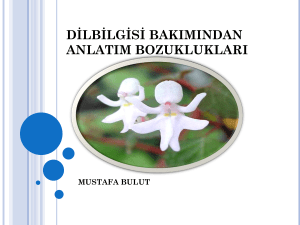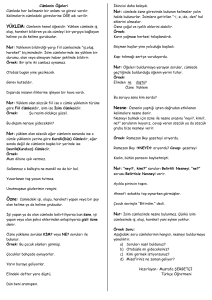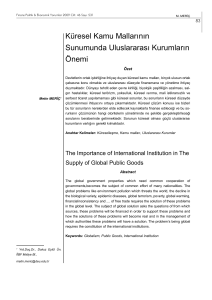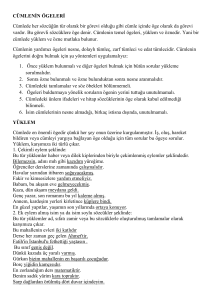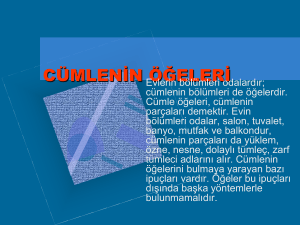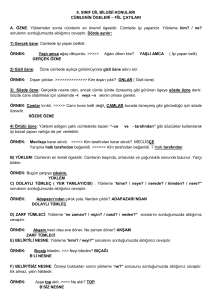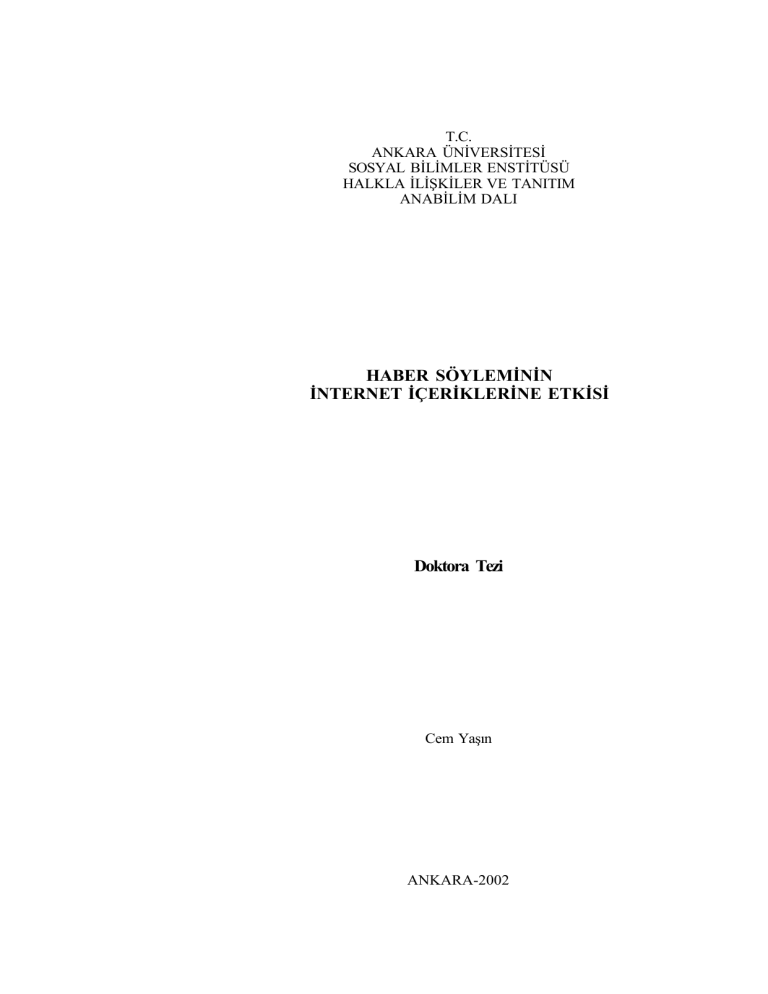
T.C.
ANKARA ÜNİVERSİTESİ
SOSYAL BİLİMLER ENSTİTÜSÜ
HALKLA İLİŞKİLER VE TANITIM
ANABİLİM DALI
HABER SÖYLEMİNİN
İNTERNET İÇERİKLERİNE ETKİSİ
Doktora Tezi
Cem Yaşın
ANKARA-2002
ÖZET
Çalışmanın amacı, egemen söylemin Internet'te farklı toplumsal kimliklerce
nasıl temsil edildiğinin açıklanmasıdır. Kuramsal çerçeve aydınlatma düşüncesinden
eleştirel kurama, özne ve ideoloji kuramlarının incelenmesinden oluşmuştur.
Çalışmada Descartes, Kant, Hegel, Marx, Althusser'in bilinç, ideoloji, toplumsal
özne kuramları değerlendirilmiştir. Çalışma, Saussure ve Levi-Strauss'ın yapısal
kuramı ile Lacan'ın özne kuramlarını da içermektedir. Kuramsal çerçeve, kitle
iletişim kuramlarında özne ve ideoloji kavramsallaştırması ile genişletilmiştir.
Çalışmanın ikinci bölümünde, egemen söylemi geniş oranda temsil eden
Hürriyet Gazetesi1 ninhaber gündemi değerlendirilmiş. Bu yapılırken, iki farklı kriter
kullanılmıştır:, bunlardan ilki yoğunlaşma ve dağılma, diğeri ise zamanda
sürekliliktir. Haber listeleri içerikleri, gündemde paralellik alt gündemde seçicilik ve
alternatif
gündemden
oluşan
kriter
içerisinde
değerlendirilmiştir.
Hürriyet
Gazetesi'nin değerlendirilmesinden sonra. Hürriyet gazetesi gündemi ile Internet'te
incelenen iki tartışma listelerinde tartışmaların karşılaştırılmasına dönmüştür. Bu
karşılaştırma Makro
düzeyde,
Hürriyet gündemi
ile
Internet'teki
listelerin
paralelliklerini bulmaya, mikro düzeyde ise olumsuz kimlik kategorilerinin bu
listeler içerisinde ortaya çıkışı olarak değerlendirilmiştir.
Sonuçta, Tez de Farklı kimliklerin kendilerini özgürce temsil ettikleri bir araç
olarak tanımlanan Internet'te kendilerini egemen söylem içerisinde üretmeleri
değerlendirilmiştir ve merkezi eğilimin ve diğeri kategorisini algımız sınanmıştır.
Çalışmada internet'in farklı kimliklerin var olduğu kamusal alan olma özelliği
göstermek yerine, egemen söylemin farklı kimliklerce taşındığı ve bu kimliklerin
egemen söylem içerisinde yeniden üretildiği bir araç olduğu sonucuna varılmıştır.
276
SUMMARY
The aim of this thessis is to explored how the dominant discourse has been
represented in Internet by different social identities. The theoretical framework of
this study is constructed on the basis of subject and identity theories, tracing their
changing nature from the classical Enlightenment to the Critical Theory. The
concepts consciousness, ideology and social subject tackled by Descartes, Kant,
Hegel, Marx and Althusser have been critically evaluated in this study, vvithout
ruling out the structuralist theory of Saussure and Levi-Strauss and the subject theory
of Lacan. Additionally, this framevvork attempts the crystalise the argument with
particularly paying attention to the very conceptualisation of subject and ideology in
mass comunication theory.
Follovving the theoritical framevvork, this thesis then takes an account of the
news coverage at Hürriyet, a Turkish newspaper which, to a large extent, represents
the dominant ideology in the country. In doing so, this account takes two dimensions:
concentration and dispersion one the one hand, continuty in time on the other. After
elaborating the news coverage at Hürriyet in circa 1999, this study turns its face to
two mailing lists in Internet, comparing the contents of the discussions in those
mailing lists with the coverage at Hürriyet. This comparison goes on to find, at
macro level, parallel points between the coverage at Hürriyet and the contents of the
discussions in the mailing lists and then to spot, at micro level, the emergence of "the
other" category, a category which represents a negative identity formation
mismatching with the mainstream one.
Finally, this thesis is an exercise to sensitise our understanding about the
representation of mainstream and the other identities, positing a bold argument that
277

